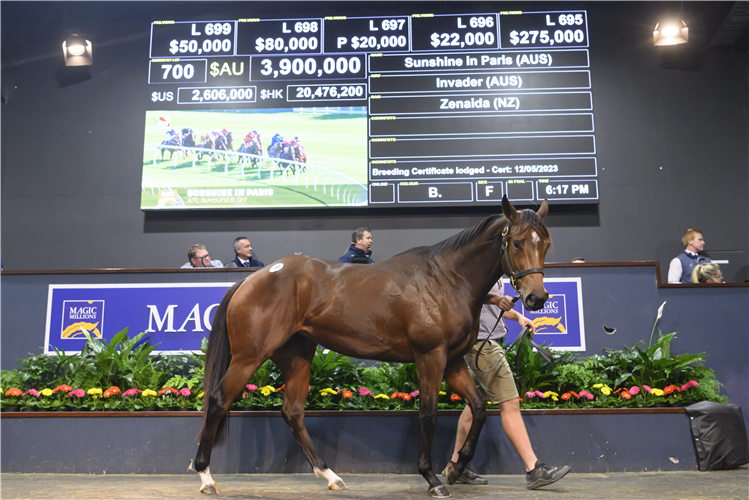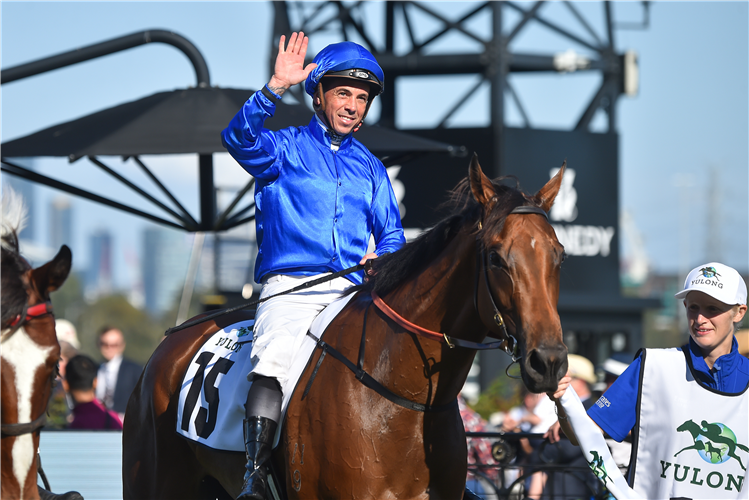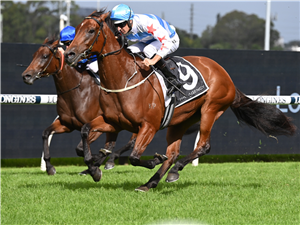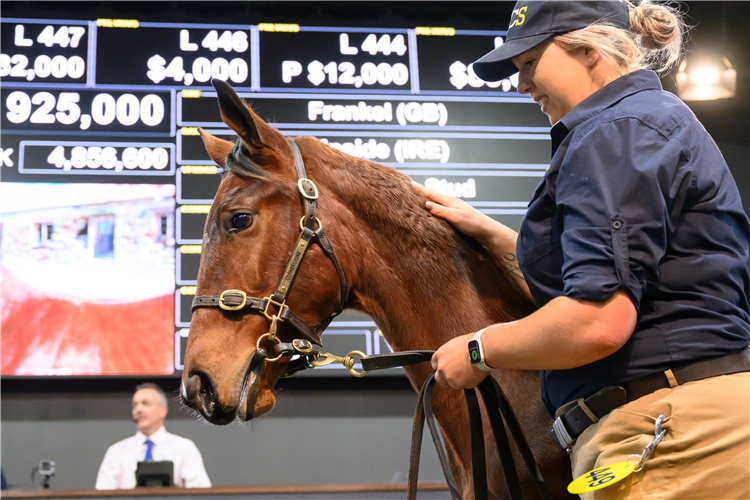Internationals to undergo stringent checks before travelling to Australia
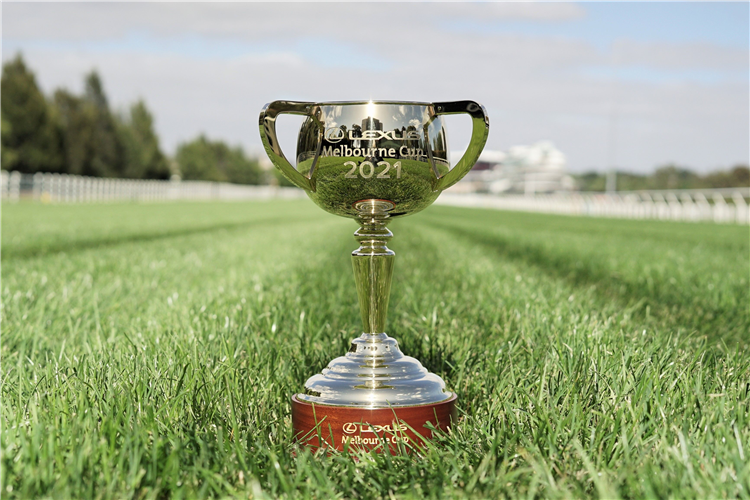
Racing Victoria have sent shockwaves through the international racing fraternity, when they set new measures overseas horses will have to undergo to compete in the Melbourne Cup (Gr 1, 3200m).
A series of new measures are to be brought in to combat the injuries and fatalities - mainly to overseas contenders - in the time-honoured race, and this review was triggered by the death of Derby (Gr 1, 1m4f) winner Anthony Van Dyck (Galileo) in last year’s race, the fourth Cup runner in eight years to have died as a result of a serious leg injury.
The review produced a list of 44 recommendations, of which 41 will be adopted ahead of the 2021 Spring Carnival.
Among the changes is that the number of international horses permitted at the Werribee International Quarantine Centre will be limited to 24 – down from 42 in 2018 – and those horses will be allowed just one run in Australia before their Cup challenge, ruling out any international runner being able to compete in the ballot exempt Hotham Handicap (Gr 3, 2500m), which is run on the Saturday prior to the Melbourne Cup.
Overseas horses will have to undergo a series of pre-export tests - at the expense of their owners - as well as having to be available for a further pre-export test from an RV-appointed vet, before having to comply with a number of pre-race tests while in quarantine at Werribee.
Any horse who has suffered a previous fracture will be denied the opportunity, as will those who have undergone orthopaedic surgery.
As well as capping the number of international runners at Werribee, the recommendations also include the retention of the centre as Victoria's quarantine centre with enhancements to aid horse welfare and education for international trainers, owners and private veterinarians to ensure clarity around the changes and RV's expectations.
The extensive review was led by RV executive general manager – Integrity Services, Jamie Stier, and included members of RV's veterinary, equine welfare and racing teams, along with independent representatives in VRC Director and Godolphin Australia managing director Vin Cox, champion trainer Chris Waller, and internationally renowned regulatory veterinarian Dr David Sykes.
The review group conducted an expansive consultation process with more than 65 local and international stakeholders including veterinarians, trainers, jockeys, owners, track managers and racing clubs with the primary objective of developing recommendations to enhance the safety and welfare of international horses in Victoria for the Spring Racing Carnival and of all horses competing in the Melbourne Cup.
The process involved the review group covering four key areas: the higher rate of injuries among visiting and imported horses over the past decade; pre- and post-travel veterinary and diagnostic requirements; training facilities both internationally and upon arrival in Melbourne; and the conditions of the Melbourne Cup.
The headline initiatives being implemented with the aim of reducing injuries among international horses during the Spring Racing Carnival and among all horses competing in the Melbourne Cup are as follows:
Pre-Travel
·An enhanced pre-travel veterinary examination process will ensure an unprecedented level of scrutiny on horses wishing to travel with additional compulsory diagnostic imaging and examinations to be conducted;
·All international horses wishing to enter WIHC must undergo full body scintigraphy and CT/MRI of their distal limbs at the expense of their connections two to six weeks prior to entering pre-export quarantine;
·Horses that have had a previous major fracture or orthopaedic surgery will be excluded from travelling and entering WIHC regardless of their current health and soundness; and
·An RV appointed veterinarian will conduct a pre-travel veterinary examination in pre-export quarantine within a week of travelling to Australia to ensure the ongoing suitability of horses to travel.
Post-Arrival in Australia
·All international horses that arrive at WIHC must also undergo a CT scan of their distal limbs prior to each start in Victoria during the Spring Racing Carnival before being permitted to compete, with the costs to be met by RV;
·Dedicated RV appointed veterinary staff will provide and/or oversee veterinary clinical services for international horses at WIHC instead of stables appointing their own private veterinarians; and
·Enhanced oversight will include new trackwork monitoring processes and systems along with the world-first introduction of cortisol analysis to monitor stress levels in international horses based at WIHC.
Werribee International Horse Centre
·The WIHC will be retained as the industry's quarantine facility and international training centre with further enhancements to be made to the two training tracks and veterinary examination facilities;
·The depth of the profile of the sand-fibre track will be increased and track preparation modified to increase the depth and frequency of harrowing, while the crossing will be upgraded on the turf track;
·The number of international horses permitted to enter the WIHC for the Spring Racing Carnival will be capped at 24 – down from an uncapped peak of 42 in 2018; and
·Imported international horses ('one-way tickets'), whilst in training, will be required to remain at the WIHC until at least the conclusion of Melbourne Cup week before being permitted to transfer to different training facilities.
Melbourne Cup
·In what is believed to be a world-first initiative, all horses – international and local – must undergo a CT scan of their distal limbs before being permitted to compete in the Melbourne Cup, with the costs to be met by RV;
·That diagnostic imaging must be performed after the date of the Caulfield Cup and prior to Melbourne Cup final acceptances, with local horses permitted to start between their imaging and the Melbourne Cup;
·These scans will be reviewed by a panel of three RV-appointed international experts in equine surgery and veterinary diagnostic imaging to determine the horse's suitability to race;
·International horses that travel to Australia via the WIHC will be permitted to have a maximum of one start only in Australia prior to contesting the Melbourne Cup; and
·An additional pre-race veterinary inspection of all starters will be conducted by a panel of RV veterinarians on the day prior to the Melbourne Cup, in addition to that already conducted on the Thursday/Friday prior to the race.
In arriving at that decision, the RV Board determined that the enhanced veterinary procedures and screening measures are the best combination of changes to reduce the risk of injury to horses. As a result, the following three recommendations were not endorsed:
·A change in the minimum targeted track rating for the Melbourne Cup to Good 4 from no firmer than Good 3 on the basis that the industry's track surface preparation guidelines were only updated in August 2019 to provide more give in the ground in the interests of horse welfare. It was further noted that the guidelines must be applied consistently to all races for the integrity of the sport (Recommendation #27);
·A reduction in the Melbourne Cup field size from 24 to 20 starters on the basis that there was limited data to support the impact of this and that none of the fatalities in the race have been caused by interference. It was further noted that there is no evidence that the horses most at risk of injury were the last four horses included in the field through the order of entry (Recommendation #28); and
·An increase in the minimum handicap rating for horses to enter the WIHC from 100 to 110 on the basis that there is no clear evidence to suggest that horses rated below 110 carry any greater risk and that the capping of the number of horses permitted to enter WIHC achieves the same objective of a reduction in international horses (Recommendation #36).
To facilitate the implementation of the plan, RV, the VRC and the Melbourne Racing Club (MRC) have today also announced that nominations for the 2021 Melbourne Cup and 2021 Caulfield Cup will be brought forward to 3 August to allow sufficient time for extensive veterinary examinations of international entries.
The final race conditions of the 2021 Melbourne Cup will be published in June.
RV chairman, Brian Kruger said: "Racing Victoria, and the broader racing industry, has a duty to provide for the safety and welfare of every horse in every race. The saddening events of last spring showed us that more needed to be done to help reduce serious racing injuries, particularly among international horses targeting our Spring Racing Carnival.
"We worked closely with the VRC in commissioning a comprehensive review into the injury rate among international horses participating in the Spring Racing Carnival over the past decade, as well as horses competing in the Melbourne Cup.
"I want to commend the review working group for their efforts and thank all those stakeholders, locally and internationally, who participated in the review and helped shape the final recommendations tabled with the RV and VRC Boards.
"The review ultimately found that injuries in international horses, including in the Melbourne Cup, result from a variety of factors and that a combination of changes is required to reduce the risk of injury rather than one single initiative.
"Today we have released a new global safety benchmark for horses competing in the Spring Racing Carnival with a primary goal of delivering a safer Melbourne Cup, one that all Australians can continue to enjoy and be proud of.
"There will be a reduction in the number of international horses that travel to Melbourne with unprecedented veterinary screening and oversight to be delivered, building upon a series of enhancements made in 2019.
"There will be improvements to the Werribee International Horse Centre to aid horse welfare and veterinary screening, whilst all horses, international and local, will need to pass rigorous examinations to take their place in the Melbourne Cup.
"We know some of these initiatives will be onerous on connections, but we make no apology for making the safety of horses our priority. Our sole focus is on ensuring that horses and riders compete safely, and we are committed to delivering these important enhancements in 2021 and beyond."


